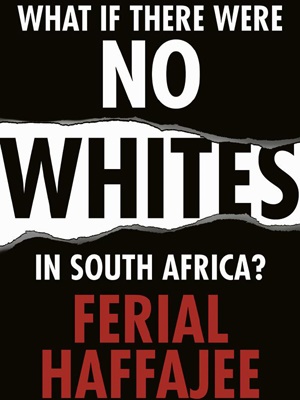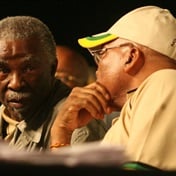
City Press editor in chief Ferial Haffajee’s debut book, What If There Were No Whites In South Africa? has attracted a number of heated responses. We asked two reviewers to weigh in
What If There Were No Whites In South Africa? by Ferial Haffajee
Pan Macmillan
256 pages
R233 at takealot.com
2/5
Ferial Haffajee’s book title can be mistaken for a work of literature that is a philosophical exposition on how life would have evolved for black people in South Africa if white people had not tampered with their natural progression.
It can also be thought of as an anthology of indigenous systems. How black people shaped life back then and how the arrival of white people might have disrupted these systems and affected the African people’s sense of being and their relegation to servitude. Alas, the book offers neither.
The question is practical and posed in the immediate present – an unimaginable fantasy that defies our South African reality. White people are here to stay, thus any discussion that distracts us from dealing with reality as we know it may easily serve as a red herring.
Haffajee is perplexed by the young black South African discourse on white supremacy, white privilege, and the alleged ubiquity of white culture and its ability to become the norm in a democratic South Africa. This has led her to writing this book – to show the other side.
Freedom has worked for Haffajee. She lives under a new establishment (defined by black politicians, businesspeople, entertainers and artists) that is antithetic to the old establishment defined by colonial and apartheid contours of repressive laws.
The concept of “establishment” is not adequately explained. Does it define a new governing polity, or a reordered social reality altogether?
The book also fails to appreciate the contested meanings of reconciliation. Haffajee sees this as an important step that had to be taken.
It would be interesting to hear her respond to the question: How can you reconcile people who had never lived in conciliatory terms, whose reality was always antagonistic?
The author is an ardent believer in nonracialism and wants to lecture all on what it means. The book is partly a response to young people’s assertions that there is a need to decolonise South Africa of the omnipresence of whiteness. Haffajee is trying to put them all in their proper lanes, including those harping on about issues like intersectionality.
There is great insult meted out by Haffajee to young people.
In response to Khusela Sangoni-Khawe – who in a discussion for the book says: “It’s difficult to address it [racism] head-on because you have a programme of national reconciliation, nation-building, blah blah blah.” – Haffajee writes: “Blah blah blah. This term perfectly encapsulates how a younger generation feels about the founding democratic pact of South Africa.” It is insulting because from #OpenStellenbosch to #RhodesMustFall to the #BlackStudentsMovement, students have vigorously communicated their diagnosis of the status quo and where the 1994 project failed. Haffajee cannot impose her reality on them.
These students have won important victories on fees and #EndOutSourcing on many campuses countrywide, reordering the “normal” (a democratic South Africa that works for all) preached by the likes of Haffajee. She is right to admit that her “politics is terribly out of step”.
Her claim that black people desire only all-black spaces is false. Black people are demanding to be respected and accorded dignity (as an inalienable right) without begging for it. These students use Pan-Africanism and black consciousness as their guiding ideologies, and these have never rejected the coexistence of races.
Robert Sobukwe spoke of the “human race” and Steve Biko said the greatest gift Africa could give to the world was “a more humane face”.
These encompass all humanity and there is no “blah blah blah” approach by the students – that is offensive, much like the book is to all people who take race discussions seriously.
When dealing with the middle class, the author uses statistics that are porous. How can a person who earns R5 600 be in the same income bracket as one who earns R40 000, with both being identified as “relatively affluent middle class”? This is unsound. Praising an indebted, asset-deprived, tax-laden and savings-short black middle class is an injustice.
Yes, black people should not play the race card to mask their inadequacies, like former Prasa group CEO Lucky Montana. But the narration of people’s pain and their everyday confrontations with subliminal and overt racism, patriarchy and capitalism should never be trivialised.
Haffajee’s book is full of contradictions and lacks nuance in how it enters a field rich with powerful and rigorous propositions and counter-arguments.
It seems Haffajee is uncomfortable that she is not defining today’s narrative on race in South Africa. To be heard, she must defy her own thinking and provide a counter-narrative that does not critically engage the rich responses she got from the round table discussions she hosted as “research” for the book.
. Mnguni is a PhD intern researcher in the Maurice Webb Race Relations Unit at the University of KwaZulu-Natal




 Publications
Publications
 Partners
Partners








